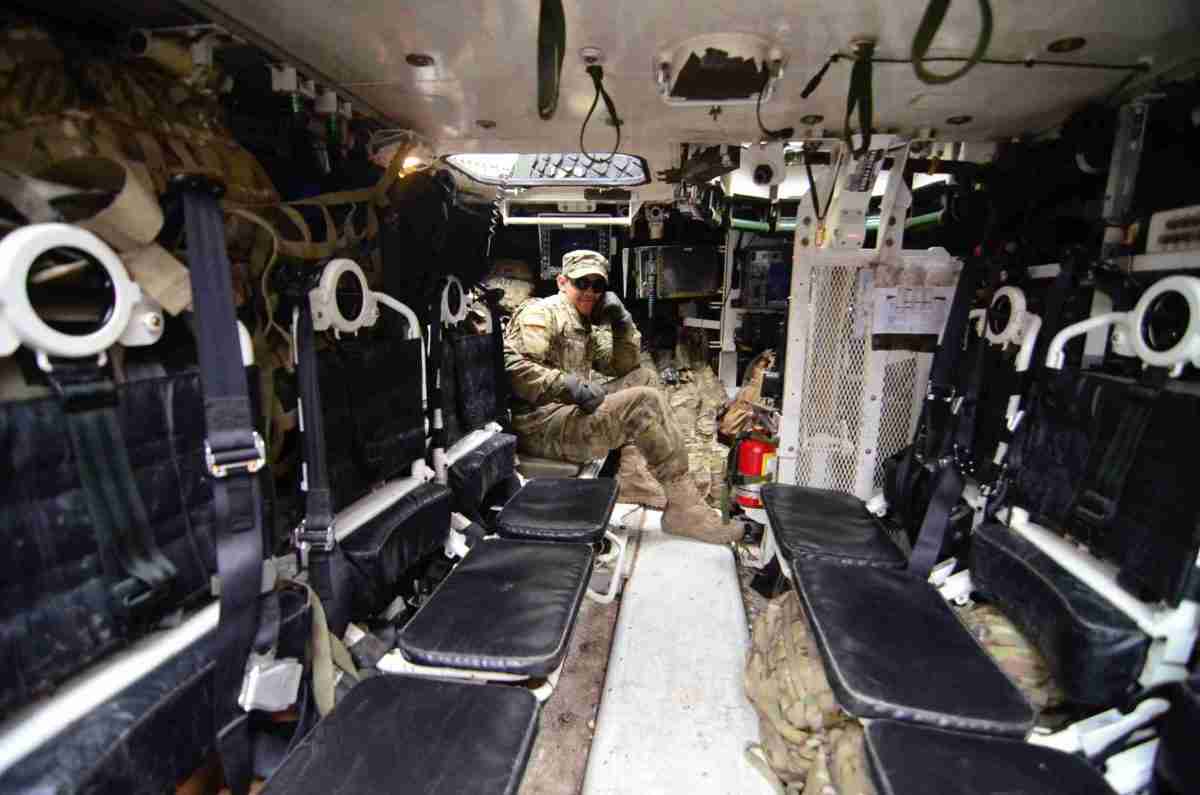
When veterans seek disability benefits from the U.S. Department of Veterans Affairs, they must demonstrate their injury or illness is connected to their military service. To provide evidence for service connection or an increased rating, veterans can gather buddy statements, also known as a VA buddy letter.
What Are Buddy Statements?
Buddy statements are written statements provided by individuals aware of the veteran’s sickness, disease, or injury. These individuals can include the veteran’s spouse, family members, friends, or fellow service members. They offer firsthand information about the incident that caused the disability and the disability itself and can be a critical component of a veteran’s VA disability benefits claim.
If a veteran’s medical records lack sufficient evidence, the VA is duty-bound to help veterans develop a claim for a service-connected disability under the Veteran’s Claims Assistance Act of 2000 (VCAA). In such situations, the VA must consider lay evidence, like buddy statements, which support the veteran’s claim.
For instance, if a veteran suffers from an injury or event that occurred in service, but no record is available, a fellow service member who witnessed the event can write a statement of what they saw. The evidence presented by the buddy letter must be considered by the VA when determining service connections.
Veterans can use VA Form 4138 for their buddy statements to get started. This guide provides eight helpful tips on writing a buddy statement for another veteran, including the basics of buddy statements and how to ask for one when making a VA disability claim.
Buddy statements can be beneficial when records are lost, destroyed, or never existed. It’s acceptable to submit numerous statements from multiple individuals, but each one should be submitted on a separate form. They are also a more cost effective option than a Nexus Letter.
Do Buddy Letters Help a VA Claim?
Medical facilities often dispose of medical records after 7-10 years, leaving gaps in treatment history. However, credible statements from close friends or relatives can fill these gaps and bolster your claim.
For example, veterans may delay seeking treatment for symptoms of PTSD until urged by someone close to them. In such cases, these individuals can provide information on observed changes in day-to-day activities during the relevant period.
What Should I Write in My VA Buddy Letter?
When submitting buddy statements for service-connection claims, it’s important to focus on the incident in service that caused the disability. These statements typically come from fellow service members. For example, a buddy statement is crucial if the veteran’s service records don’t indicate involvement in combat, but a witness can corroborate the injury.
For claims already service-connected but seeking an increased rating, statements should highlight symptom progression and how the condition has impacted the veteran and those around them.
Family members can offer unique insight into how the condition affects the veteran’s daily life, which may not be apparent during a Compensation and Pension examination, which only shows a snapshot of the veteran’s condition. But buddy statements can provide a complete picture of its severity over time.
What Makes a Good Buddy Letter For the VA?
The VA wants specific information, and it’s important to know how to write a buddy letter. Here are four tips to help you when requesting buddy statements:
- Define the statement’s purpose: Before approaching friends or family members for buddy statements that support your claim, identify the statement’s goal. For example, if your claim is requesting an increased rating for PTSD, you should focus on the symptoms that individuals have noticed over the past few years.
- Choose the right people for the statement: If your claim is for service connection, your buddy statements’ focus will differ. For instance, if you’re claiming a back condition due to an in-service fall, the most persuasive buddy statement you can submit will be written by someone with firsthand knowledge of that fall, most likely a fellow service member. If you can’t locate someone who remembers the incident during service, try talking to family members or friends whom you may have told about the incident when it happened.
- Consider former employers or coworkers: If your goal is to be rated totally disabled based on individual unemployability, former employers or coworkers may be a good source for buddy statements. They’re the best witnesses to speak about your ability to function on the job, recounting accommodations you were given or problems your disability caused.
- Review the formatting: A buddy statement should include the contact information for the person writing it, including their name, address, and phone number, as well as the full name of the veteran for whom the statement is being written. It should contain the buddy’s perception of what they witnessed, whether the incident caused the disability or the progression of symptoms. It must be signed by the buddy on a VA 4138 form or notarized. The VA wants a statement formatted such that the writer is swearing that what they write is the truth.
What Should A Buddy Letter Say?
If a veteran has asked for your help by writing a buddy statement, following some best practices is essential to ensure they can receive VA benefits for their injury or illness. Generally, the letter should be three to four paragraphs long and include your name, your relationship with the veteran, details about the in-service incident that caused the injury or illness, complete details about the current injury or illness, and your signature. The following tips will help you write an effective buddy letter:
- Clearly state your relationship with the veteran: In the first section of the letter, it’s essential to state your name and how you know the veteran. Additionally, it’s helpful to mention the duration of your relationship with the veteran.
- Provide detailed information: The second section of the buddy statement should cover the service-connected injury or illness and the event that caused it (if applicable). You must provide as many details as possible.
- Only include accurate information: While you should try to provide as many details as possible, it’s crucial to only include information that you know is true.
- Sign and date the letter: When signing and dating the letter, you’re required to include a statement certifying that you’re telling the truth in the buddy letter.
VA Buddy Letter Example from a Wife
I, Jane Doe, solemnly swear that the following statement is entirely truthful and accurate to the best of my knowledge:
On July 10, 2001, I married my husband, John Doe. A year later, he joined the U.S. Marine Corps and served as a combat engineer from July 2002 to July 2006, performing his duties honorably. Before enlisting, he was cheerful and enjoyed spending time with family and friends. He adored his niece and enjoyed taking her fishing. We frequently went hiking with our dogs on weekends, cooked dinner together, or watched comedy shows on weeknights. He wasn’t much of a drinker, but he loved food. He worked as a chef at a local restaurant, and cooking was one of our favorite pastimes. He had a massive, kind heart and lived for his loved ones.
Before being deployed, John was stationed at Camp Lejeune and wrote to me once a week. His letters were long, joyful, and reflected the man I knew him to be. However, I barely heard from him after he was sent to Iraq in August 2003. During his six months overseas, I received only three letters totaling less than a page. His tone was very factual. I tried not to worry and hoped things would return to normal after he returned home, but they only worsened.
Upon his return, he relocated all his belongings from our bedroom to the basement. He cut himself off from everyone: me, his niece, his friends, and his siblings. He stayed in the basement with the shades drawn, day in and day out. I had to keep working to pay the bills because John wouldn’t.
Whenever I attempted to confront him, he became furious and shouted louder than I had ever heard him before. He began drinking heavily, consuming seven or eight beers per night before switching to hard liquor. He stopped eating, and his clothes, which used to fit him, hung loosely on his emaciated body. He was also paranoid and reactive, punching a man at the supermarket whom he claimed was stalking him and having to spend a night in jail. I packed a bag and went to my parent’s house until John agreed to seek assistance.
A year later, John was arrested for DUI and had to attend substance abuse meetings. After reducing his drinking, John began gradually speaking to me about his experiences while deployed. He spoke about the bodies and devastation he witnessed and the stench of burning oil. He refused to see a therapist, insisting he could care for himself and resumed working as a chef, pouring himself into what he loved and appeared to be improving.
As a result, I agreed to return home. However, we attended a neighborhood 4th of July party a year later. I was thrilled that John was beginning to socialize again and appeared to be returning to his former self. Things were going well until some fireworks went off unexpectedly, causing John to go into a frenzied rage. He began throwing things and hiding beneath tables. It took three of his old high school friends to restrain him and assist him in getting home.
Since that night, John’s mood has been unpredictable. He has weeks or so when he appears to be his old self before abruptly becoming someone I don’t recognize. He recently agreed to participate in group therapy sessions at our local VA, which appears to be aiding him in acknowledging that he requires assistance. Our relationship is still not the same, but I hope that treatment will assist him in finding the peace he needs to recover.
I confirm that the information I have given is true and correct to the best of my understanding and belief.
Can I Write My Own Buddy Letter?
Yes, you can write your buddy letter when applying for VA benefits, although it’s technically called your Personal Statement in Support of a Claim. When writing your buddy letter, remember to include specific details about your condition, including how it affects your daily life, work, and relationships. You should also describe any events or experiences that support your claim, such as combat or exposure to hazardous materials.
Be sure to include your full name, service number, and the date of your letter. You should also provide contact information if the VA needs to follow up with you or your buddy.
How to Submit a Buddy Statement for VA Disability Benefits
When applying for VA disability benefits, veterans may include a buddy letter as additional evidence to support their claim. A buddy statement is a letter written by a friend or family member who witnessed the veteran’s military service and can confirm their current symptoms or the in-service event. Here are two ways to submit a buddy statement:
- VA Form 4138: This form, also known as the Statement in Support of Claim, is the simplest way to submit a buddy letter. By filling out and signing this form, veterans confirm the truthfulness of the information provided.
- Affidavit With a Notary: Alternatively, veterans can obtain an affidavit to swear that the testimonies in the buddy statement are true.
Do VA Buddy Letters Need to Be Notarized?
VA buddy letters do not need to be notarized. However, notarized letters may provide additional credibility. If the person writing the letter is willing and able to have it notarized, it can help demonstrate that the information provided is accurate and reliable.
Ultimately, the most important thing is that the letter provides accurate and detailed information about the claimant’s condition and how it relates to their military service.

